It was, though, one of four cars scheduled to enter the 1955 running of the dangerous Mexican road race (hence the ‘CM’ in the chassis number, for Carrera Messicana), an event which was cancelled in 1955 as a result of its appallingly high casualty record in previous years.
Ferrari had decided to improve on its 1954 375 Plus (which won both the Le Mans 24 Hours and the Mexican Carrera Panamericana that year) by increasing engine capacity, shortening the chassis and lowering the centre of gravity. The 340bhp V12 was the first appearance of the 4.9-litre Superamerica engine.
De Dion rear suspension and a transaxle (5-speed for this car, 4-speed for the two immensely powerful factory roadsters) gave the 410 Sport much better handling and an enhanced ability to traverse poorly maintained roads with some degree of security.
It also allowed Carrozzeria Scaglietti to fashion the most beautifully proportioned coupé bodywork for this car, the only 410 S so-bodied and one of the very earliest examples of a Ferrari carrying the famous rectangular badge. Compared to the longer and taller 1954 coupés, this one appears wider and more aggressive.
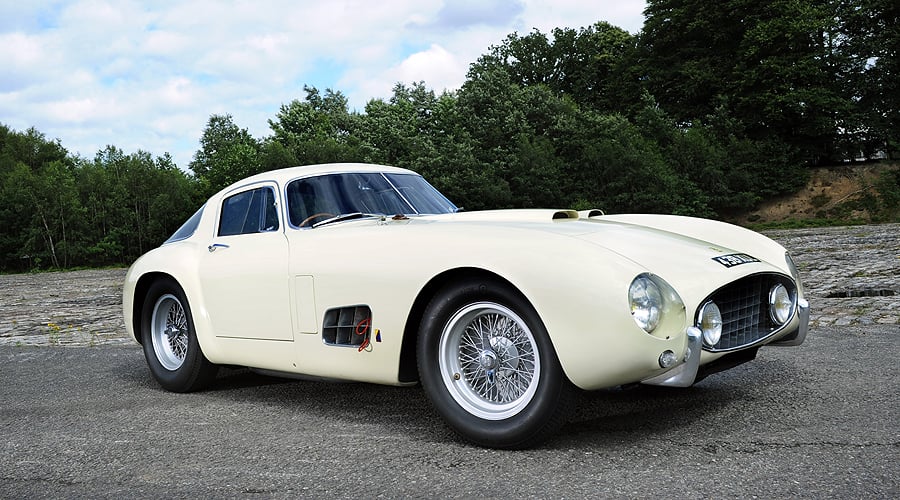
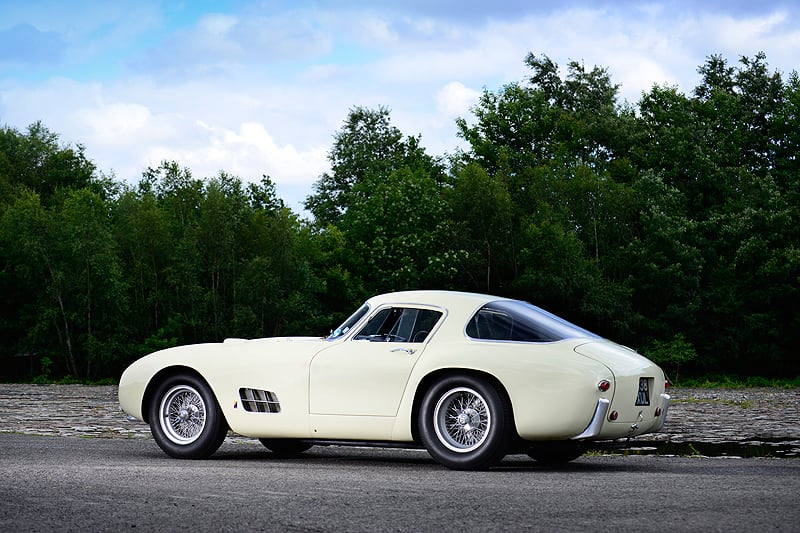
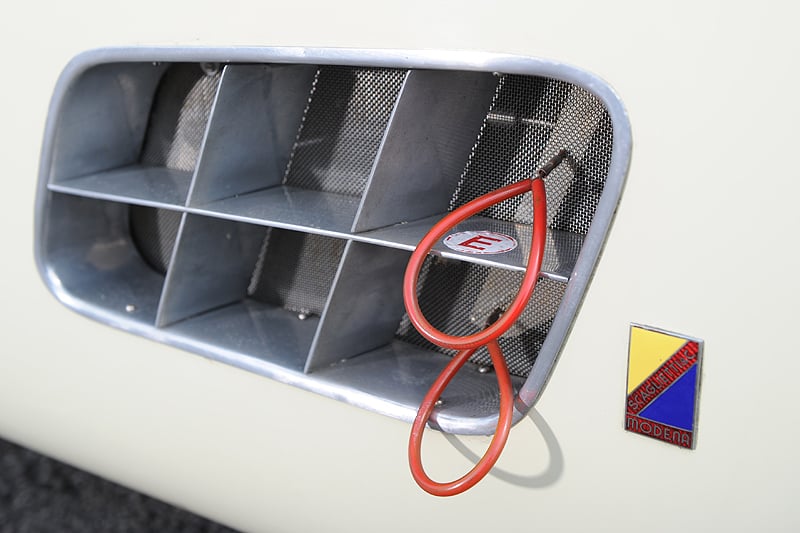
It was a very special one-off for one of Ferrari’s most discerning clients, who would later serve on the board of S.E.F.A.C. (a separate company that acted frequently as the entrant of the Ferrari racing team in the early Sixties): Michel Paul-Cavallier.
Still in its original specification of Ivory with medium-blue leather interior, the car – a leading entry at RM Auctions’ 17-18 August 2012 Monterey sale – is in ‘time-warp’ condition. It has never been damaged nor had any of its mechanical components replaced or ‘improved’ in the modern style. Ferrari Classiche certification? Of course. Mechanically, it felt rock-solid, in quite the most perfect condition.
So, left leg slipping under the big, wood-rimmed wheel and the lightweight door closing with a satisfying ‘click’, what’s it like to drive?
The docile, 4,962cc, triple-Weber carburettor V12 fires up immediately, settling into a typical ‘threshing’ beat typical of early Fifties Ferraris. Yes, the steering wheel is close (in fact the cockpit is smaller than you might think – perfectly all right for an event, though). The pedals are delicate and do require driving shoes.
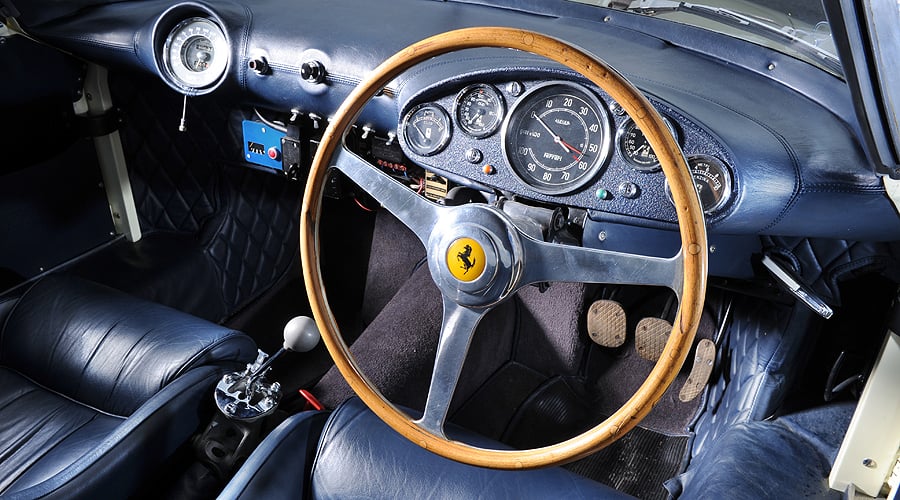
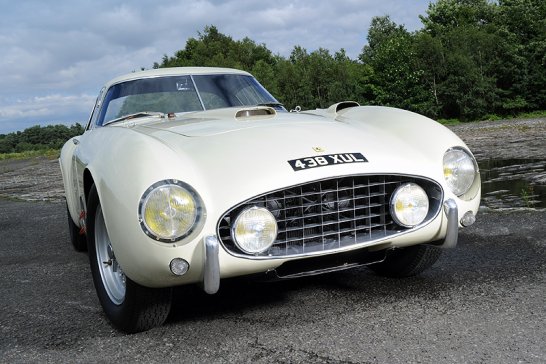
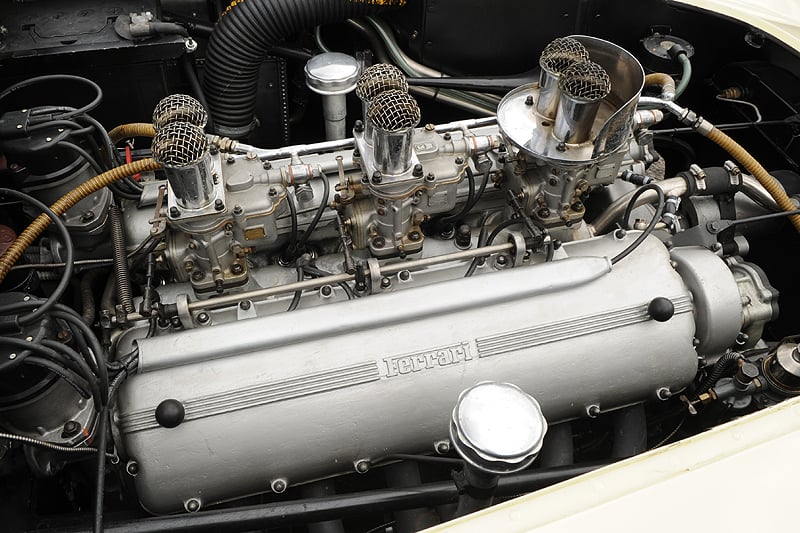
‘Umbrella’ handbrake released, the heavy gear-lever slotted left and back into first, an increase in revs and the clutch now fully home... the big car moves off. The clutch is clearly competition-derived but, with familiarity, does not present an ever-present challenge of stalling. First gear is L O N G. In fact, with only a few thousand revs on the clock, in first, the cream-coloured coupé is soon moving at quite some speed.
Upchanges, until the gearbox is fully warm, take a bit of brawn. But such is the flexibility of the engine – Lampredi at his finest, a work of genius – that, at more or less any figure under a self-imposed limit of 5,000rpm, the powerplant pulls the big Ferrari along with ease.
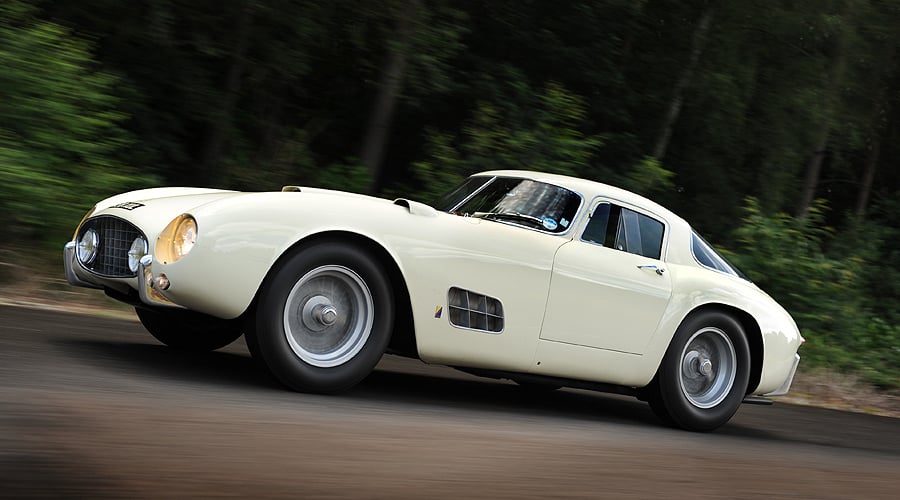
Fourth to fifth gear is the best, and the faster you make the change the easier it becomes. Just imagine snapping the short chromed lever back with 6,000 revs on the clock, the horizon reeled in at well over 140mph, many kilometres of open road unfolding before you.
The steering wheel and gear-lever brush my legs - yet soon their close proximity becomes second-nature. I wasn’t wearing belts on the private test track and, if anything, this made the time-travelling experience even more visceral.
It’s a fine, well-behaved car at modest speeds, the wheel holding steady when straight and becoming progressively heavier when piling on more lock.
But this is a car for long, straight roads, uncluttered by modern traffic, where the driver wants to sit back in the wonderfully supportive bucket seat and then really press on, lining up each corner and powering through every apex.
With an ‘Estimate on Request’ guide price, it’s going to be a car for the discerning few – as it was all those years ago when one very special client ordered it new from Ferrari.
Video & Photos: Simon Clay









